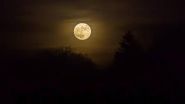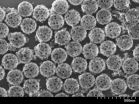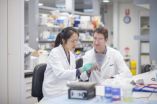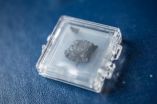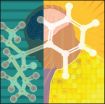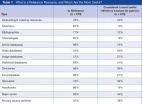(Press-News.org) Popular beliefs about the influence of the moon on humans widely exist. Many people report sleeplessness around the time of full moon. In contrast to earlier studies, scientists from the Max Planck Institute of Psychiatry in Munich did not observe any correlation between human sleep and the lunar phases. The researchers analyzed preexisting data of a large cohort of volunteers and their sleep nights. Further identification of mostly unpublished null findings suggests that the conflicting results of previous studies might be due to a publication bias.
For centuries, people have believed that the moon cycle influences human health, behavior and physiology. Folklore mainly links the full moon with sleeplessness. But what about the scientific background?
Several studies searched in re-analyses of pre-existing datasets on human sleep for a lunar effect, although the results were quite varying and the effects on sleep have rarely been assessed with objective measures, such as a sleep EEG. In some studies women appeared more affected by the moon phase, in others men. Two analyses of datasets from 2013 and 2014, each including between 30 and 50 volunteers, agreed on shorter total sleep duration in the nights around full moon. However, both studies came to conflicting results in other variables. For example, in one analysis the beginning of the REM-sleep phase in which we mainly dream was delayed around new moon, whereas the other study observed the longest delay around full moon.
To overcome the problem of possible chance findings in small study samples, scientists now analyzed the sleep data of overall 1,265 volunteers during 2,097 nights. "Investigating this large cohort of test persons and sleep nights, we were unable to replicate previous findings," states Martin Dresler, neuroscientist at the Max Planck Institute of Psychiatry in Munich, Germany, and the Donders Institute for Brain, Cognition and Behaviour in Nijmegen, Netherlands. "We could not observe a statistical relevant correlation between human sleep and the lunar phases." Further, his team identified several unpublished null findings including cumulative analyses of more than 20,000 sleep nights, which suggest that the conflicting results might be an example of a publication bias (i.e. the file drawer problem).
The file drawer problem describes the phenomenon, that many studies may be conducted but never reported – they remain in the file drawer. One much-discussed publication bias in science, medicine and pharmacy is the tendency to report experimental results that are positive or show a significant finding and to omit results that are negative or inconclusive.
Up to now, the influence of the lunar cycle on human sleep was investigated in re-analyses of earlier studies which originally followed different purposes. "To overcome the obvious limitations of retrospective data analysis, carefully controlled studies specifically designed for the test of lunar cycle effects on sleep in large samples are required for a definite answer," comments Dresler.
INFORMATION:
Original publication
Cordi M, Ackermann S, Bes FW, Hartmann F, Konrad BN, Genzel L, Pawlowski M, Steiger A, Schulz H, Rasch B, Dresler M.
Lunar cycle effects on sleep and the file drawer problem.
Current Biology. Vol 24, Nr. 12 (doi: 10.1016/j.cub.2014.05.017)
Further information
Dissemination and publication of reSong F, Parekh S, Hooper L, Loke YK, Ryder J, Sutton AJ, Hing C, Kwok CS, Pang C, Harvey I.
Dissemination and publication of research findings: an updated review of related biases.
Health Technol Assess. 2010 Feb;14(8):iii, ix-xi, 1-193 (doi: 10.3310/hta14080)
Does the moon affect our sleep?
Max Planck scientists find no correlation between moon phases and human sleep
2014-06-17
ELSE PRESS RELEASES FROM THIS DATE:
How does a tree know it's time to grow again?
2014-06-17
Winter takes its toll on living things. To protect themselves from the elements, bears hibernate, and trees go dormant. Biologists have observed what happens when trees become dormant, but up to now, they haven't understood the underlying genetic mechanisms that enable them to start growing again.
Led by molecular geneticists from Michigan Technological University a gene has been identified and characterized that tells a poplar tree when winter ends and a spring growing season begins. Victor Busov, a professor in Michigan Tech's School of Forest Resources and Environmental ...
Long-term study suggests ways to help children learn language and develop cognitive skills
2014-06-17
Examining factors such as how much children gesture at an early age may make it possible to identify and intervene with very young children at risk for delays in speech and cognitive development, according to a new study by researchers at the University of Chicago.
The research by leading early learning scientists looked at children from a wide variety of backgrounds, including those from advantaged and disadvantaged families, and those who had suffered brain injury. Their work was published in an article, "New Evidence About Language and Cognitive Development Based on ...
Nanoshell shields foreign enzymes used to starve cancer cells from immune system
2014-06-17
Nanoengineers at the University of California, San Diego have developed a nanoshell to protect foreign enzymes used to starve cancer cells as part of chemotherapy. Their work is featured on the June 2014 cover of the journal Nano Letters.
Enzymes are naturally smart machines that are responsible for many complex functions and chemical reactions in biology. However, despite their huge potential, their use in medicine has been limited by the immune system, which is designed to attack foreign intruders. For example, doctors have long relied on an enzyme called asparaginase ...
Gene 'switch' reverses cancer in common childhood leukaemia
2014-06-17
Melbourne researchers have shown a type of leukaemia can be successfully 'reversed' by coaxing the cancer cells back into normal development.
The discovery was made using a model of B-progenitor acute lymphoblastic leukaemia (B-ALL), the most common cancer affecting children.
Researchers from the Walter and Eliza Hall Institute showed that switching off a gene called Pax5 could cause cancer in a model of B-ALL, while restoring its function could 'cure' the disease.
Institute researchers Dr Ross Dickins and Ms Grace Liu led the study with institute colleagues and ...
E-cigs heavily marketed on Twitter, study finds
2014-06-17
E-cigarettes, also known as vaping pens or e-hookas, are commonly advertised on Twitter and the tweets often link to commercial websites promoting e-cig use, according to University of Illinois at Chicago researchers.
The study, published as a special supplement in the July 2014 issue of Tobacco Control released online June 16, has implications for future FDA regulations on the marketing of e-cigarettes and related products.
"There's this whole wild west of social media platforms – Facebook, Twitter and Instagram – and the FDA has no way to track what's happening in ...
Soft-drink tax worth its weight in lost kilos
2014-06-17
A tax on sweetened soft drinks could be an effective weapon in the war against obesity, generating weight losses of up to 3.64 kilograms as individuals reduce their consumption.
Researchers from Monash University, Imperial College London and University of York and Lancaster University, England have estimated the extent to which drinking habits would change if beverages such as carbonated non-diet soft drinks; cordials and fruit drinks were taxed.
Lead author Dr Anurag Sharma, of the Centre for Health Economics at Monash University, said such a tax could have important ...
Solar photons drive water off the moon
2014-06-17
Water is thought to be embedded in the moon's rocks or, if cold enough, "stuck" on their surfaces. It's predominantly found at the poles. But scientists probably won't find it intact on the sunlit side.
New research at the Georgia Institute of Technology indicates that ultraviolet photons emitted by the sun likely cause H2O molecules to either quickly desorb or break apart. The fragments of water may remain on the lunar surface, but the presence of useful amounts of water on the sunward side is not likely.
The Georgia Tech team built an ultra-high vacuum system that ...
Researchers identify new compound to treat depression
2014-06-17
There is new hope for people suffering from depression. Researchers have identified a compound, hydroxynorketamine (HNK), that may treat symptoms of depression just as effectively and rapidly as ketamine, without the unwanted side effects associated with the psychoactive drug, according to a study in the July issue of Anesthesiology, the official medical journal of the American Society of Anesthesiologists® (ASA®). Interestingly, use of HNK may also serve as a future therapeutic approach for treating neurodegenerative disorders such as Alzheimer's and Parkinson's diseases, ...
Surgical patients more likely to follow medication instructions
2014-06-17
A study in the July issue of Anesthesiology revealed that patients who receive a simple, multicolor, standardized medication instruction sheet before surgery are more likely to comply with their physician's instructions and experience a significantly shorter post-op stay in recovery. These findings are important because surgical patients often fail to follow their doctor's medication instructions for preexisting conditions such as diabetes and hypertension on the day they are having surgery – a costly mistake that can lead to surgery cancellation, complications and longer ...
References resources find their place among open access and Google, study finds
2014-06-17
Los Angeles, CA (June 17, 2014) How do open access sources, tightened budgets, and competition from popular technologies affect how librarians perceive and employ reference resources? How do librarians expect to utilize reference in the future? "The State of Reference Collections," a new SAGE white paper out today, finds that though the definition of reference is changing, this is in part because reference resources now look and feel like other information sources and because other information resources perform the traditional purpose of reference – answering research ...
LAST 30 PRESS RELEASES:
Cal Poly’s fifth Climate Solutions Now conference to take place Feb. 23-27
Mask-wearing during COVID-19 linked to reduced air pollution–triggered heart attack risk in Japan
Achieving cross-coupling reactions of fatty amide reduction radicals via iridium-photorelay catalysis and other strategies
Shorter may be sweeter: Study finds 15-second health ads can curb junk food cravings
Family relationships identified in Stone Age graves on Gotland
Effectiveness of exercise to ease osteoarthritis symptoms likely minimal and transient
Cost of copper must rise double to meet basic copper needs
A gel for wounds that won’t heal
Iron, carbon, and the art of toxic cleanup
Organic soil amendments work together to help sandy soils hold water longer, study finds
Hidden carbon in mangrove soils may play a larger role in climate regulation than previously thought
Weight-loss wonder pills prompt scrutiny of key ingredient
Nonprofit leader Diane Dodge to receive 2026 Penn Nursing Renfield Foundation Award for Global Women’s Health
Maternal smoking during pregnancy may be linked to higher blood pressure in children, NIH study finds
New Lund model aims to shorten the path to life-saving cell and gene therapies
Researchers create ultra-stretchable, liquid-repellent materials via laser ablation
Combining AI with OCT shows potential for detecting lipid-rich plaques in coronary arteries
SeaCast revolutionizes Mediterranean Sea forecasting with AI-powered speed and accuracy
JMIR Publications’ JMIR Bioinformatics and Biotechnology invites submissions on Bridging Data, AI, and Innovation to Transform Health
Honey bees navigate more precisely than previously thought
Air pollution may directly contribute to Alzheimer’s disease
Study finds early imaging after pediatric UTIs may do more harm than good
UC San Diego Health joins national research for maternal-fetal care
New biomarker predicts chemotherapy response in triple-negative breast cancer
Treatment algorithms featured in Brain Trauma Foundation’s update of guidelines for care of patients with penetrating traumatic brain injury
Over 40% of musicians experience tinnitus; hearing loss and hyperacusis also significantly elevated
Artificial intelligence predicts colorectal cancer risk in ulcerative colitis patients
Mayo Clinic installs first magnetic nanoparticle hyperthermia system for cancer research in the US
Calibr-Skaggs and Kainomyx launch collaboration to pioneer novel malaria treatments
JAX-NYSCF Collaborative and GSK announce collaboration to advance translational models for neurodegenerative disease research
[Press-News.org] Does the moon affect our sleep?Max Planck scientists find no correlation between moon phases and human sleep
